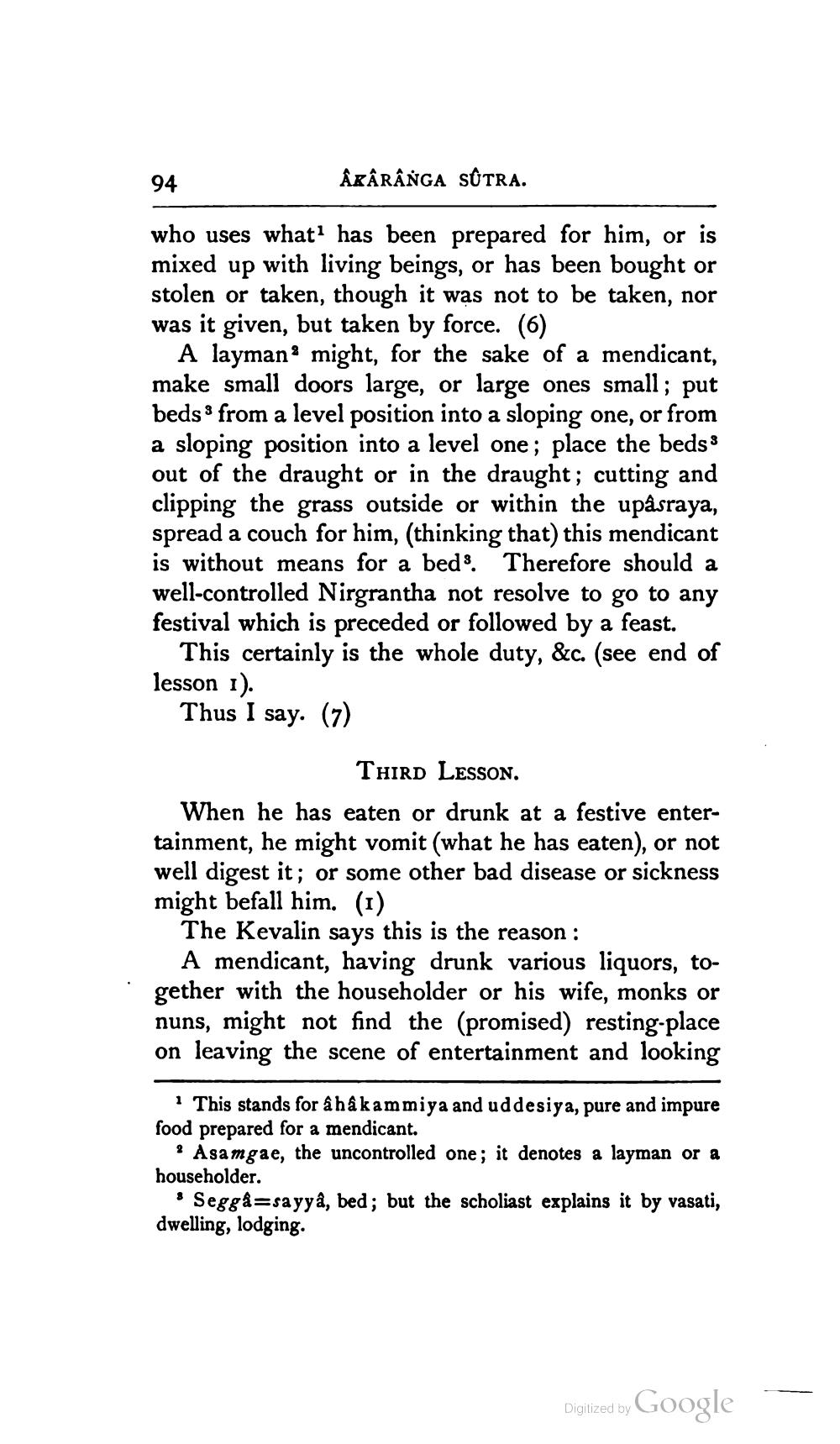________________
94
ÂRÂRÂNGA SÛTRA.
who uses what has been prepared for him, or is mixed up with living beings, or has been bought or stolen or taken, though it was not to be taken, nor was it given, but taken by force. (6)
A layman® might, for the sake of a mendicant, make small doors large, or large ones small; put beds : from a level position into a sloping one, or from a sloping position into a level one; place the beds 3 out of the draught or in the draught; cutting and clipping the grass outside or within the upasraya, spread a couch for him, (thinking that) this mendicant is without means for a beds. Therefore should a well-controlled Nirgrantha not resolve to go to any festival which is preceded or followed by a feast.
This certainly is the whole duty, &c. (see end of lesson 1).
Thus I say. (7)
THIRD LESSON. When he has eaten or drunk at a festive entertainment, he might vomit (what he has eaten), or not well digest it; or some other bad disease or sickness might befall him. (1)
The Kevalin says this is the reason :
A mendicant, having drunk various liquors, together with the householder or his wife, monks or nuns, might not find the (promised) resting-place on leaving the scene of entertainment and looking
This stands for âhâ kammiya and uddesiya, pure and impure food prepared for a mendicant.
? Asamgae, the uncontrolled one; it denotes a layman or a householder.
Segga=sayyâ, bed; but the scholiast explains it by vasati, dwelling, lodging.
Digitized by
Digilized by Google




